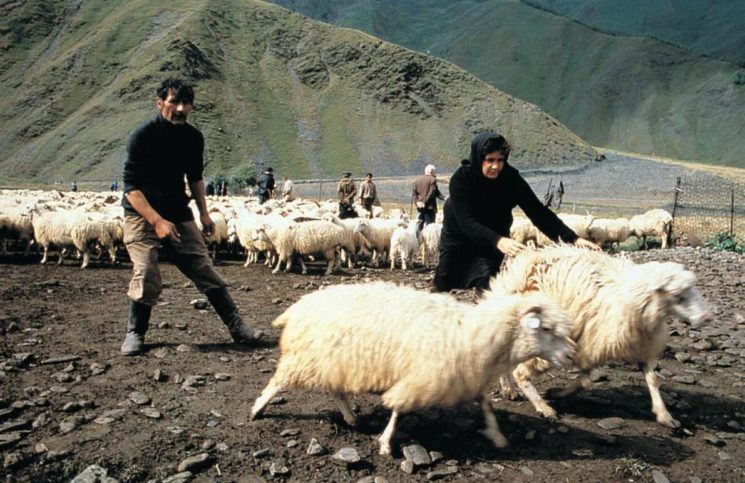The government pursues a market-oriented policy, and in 2007 the World Bank was named the world’s most reforming country in the economic field.
The 1993 civil war in Abkhazia led to something close to an economic collapse for Georgia. Monetary policy has been tightened and inflation has slowed somewhat. In 1996, a number of reform measures were introduced. private ownership of land and privatization of the banking system.
Georgia has in recent years focused on becoming a transit country for trade and oil and gas transportation. Many Georgians work in Russia, and the money they send home is one of the country’s most important sources of income.
However, Russia’s support for the breakaway republics of Abkhazia and South Osetia creates some difficulties for the country’s economic policy.
Georgia’s industry has been largely fallow since the Soviet Union disintegrated and struggles to adapt to high energy prices.
Agriculture
Agriculture contributed an estimated 13% of GDP in 2008 and close to 55% of employment. Agriculture in the Soviet era was largely run as a collective farm. After independence, a privatization of agriculture was initiated.
In the humid subtropical lowlands of the Black Sea, citrus fruits such as fruit, tea, camphor and tobacco are grown (in Abkhazia). In the country around Kutaisi, Imeretija, grapes are grown and silk is grown. However, the most important wine district is the eastern part, Kakhetija. Georgia has long traditions of wine production, and produced wine already 6000–8000 years BC. However, wine production suffered a setback during Gorbachev’s anti-alcohol campaign around the decade 1980-90. 2 / 3 of the cultivated soil occupied by corn and wheat. Otherwise, flowers, sugar beets, almonds, etc. are grown The cattle breed is particularly widespread in the east, where there is good grazing land. Sheep and goats are especially kept in the pastures.
About 38% of the area is wooded and Georgia has a good variety of woods.
Minerals
Georgia has rich deposits of manganese and coal. In particular, these are found at Chiatura in Imeretija. Other deposits of barite, diatomaceous slate, agate, marble, alabaster, iron, arsenic, molybdenum, tungsten and mercury.
Energy
In 2016, hydropower accounted for about 80 percent of the country’s electricity generation. Hydropower, together with bioenergy, is the country’s most important energy source. Since the late 1990s, Georgia has opened several pipelines to transport oil and gas to neighboring countries.
Industry
Industrial products accounted for 29% of GDP in 2008 and employed 9% of the workforce. Production of wine, metal products, machinery, chemicals and textiles has traditionally been the most important industrial industries. The political situation resulted in a complete collapse of industry in the first half of the 1990s.
The industry in Tbilisi produces, among other things. machine tools, silk and woolen textiles besides leather goods. Kutaisi is the center for the production of silk, woolen textiles, automotive engines and chemicals, while Rustavi, just southeast of Tbilisi, has iron and steel production, fertilizers and synthetic fibers, and Batumi petroleum refining and chemical industry.
Foreign Trade
Main export products are iron and metal products, gold, aircraft, citrus fruit, tea, wine and other agricultural products. Petroleum, grain and other food, machinery and spare parts and transport equipment are imported. Main trading partners are Russia and Turkey. Otherwise some trade with Germany, Turkmenistan, Ukraine, Kazakhstan, Azerbaijan and the United Kingdom.
Transport and Communications
The transport network, like the rest of society, is affected by the ethnic conflicts and the economic situation, which is visible both in terms of. lack of maintenance and lack of fuel.
The railway network has a total length of 1620 km and connects the capital with the Black Sea coast and all neighboring countries. The road network (20 363 km) is best developed in the central parts of the country. Main port cities are Batumi, Poti and Sukhumi. International airport at Tbilisi.
